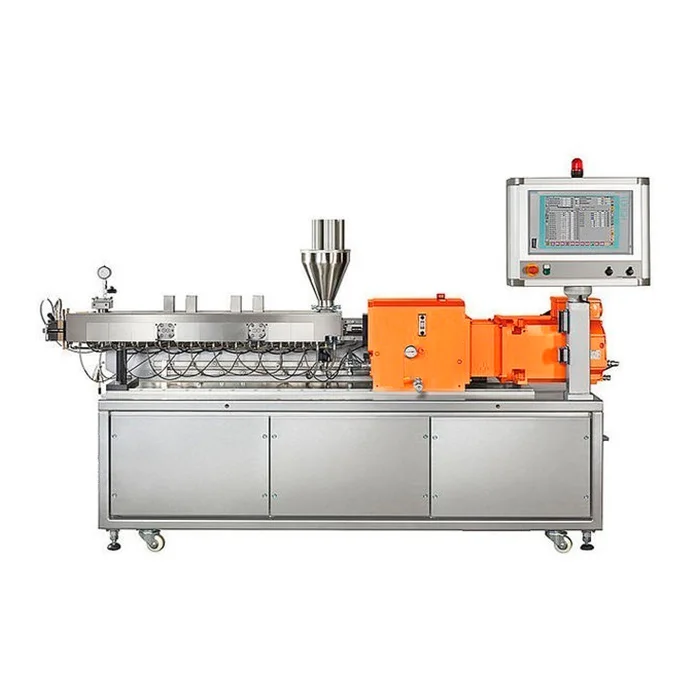In the field of polymer research and plastic material development, a lab extruder is one of the most essential pieces of equipment for evaluating, formulating, and improving polymer compounds. Whether you are conducting R&D on new materials or optimizing production processes, choosing the right lab extruder can directly influence testing accuracy, product performance, and innovation speed.
This article explains how to select the ideal lab extruder for your specific needs—highlighting the expertise of Jiangsu Kaifeng Xinye Intelligent Equipment Co., Ltd., a leading enterprise committed to driving technological advancement in the machinery industry, with products widely used in foam extrusion, plastic compounding, and other high-performance polymer applications.

1. Understand Your Testing Objectives
Before selecting an extruder, it’s crucial to clarify the purpose of your testing. Laboratory extrusion is used for a variety of goals, including:
-
Material formulation and blending: Testing additives, colorants, and fillers.
-
Process simulation: Replicating industrial-scale extrusion on a smaller scale.
-
Product development: Evaluating foam structures, film strength, or compound uniformity.
-
Quality control: Monitoring batch-to-batch consistency and processing stability.
For research-oriented labs, flexibility and precision are key, while for quality control labs, repeatability and ease of operation matter more.
2. Choose Between Single-Screw and Twin-Screw Designs
The type of screw system determines the extruder’s functionality:
-
Single-Screw Extruders:
Ideal for simpler compounding or melting tasks, they are cost-effective and easy to maintain. These machines are perfect for polymer melting, coating, and simple extrusion studies. -
Twin-Screw Extruders:
Offer higher mixing and compounding efficiency. The co-rotating twin-screw design enables excellent dispersion of additives, colorants, and fillers—making it the top choice for polymer research, foam extrusion, and advanced testing applications.
Jiangsu Kaifeng Xinye Intelligent Equipment Co., Ltd. specializes in high-performance twin-screw and foam extrusion systems, offering versatile designs that meet both academic and industrial testing requirements.
3. Consider Screw Configuration and L/D Ratio
The screw design and length-to-diameter (L/D) ratio play vital roles in determining the shear, mixing, and residence time of materials.
-
Shorter L/D ratios are ideal for simple melting or devolatilization.
-
Longer L/D ratios (typically 28:1 or above) provide enhanced mixing and uniform dispersion.
-
Modular screws allow researchers to reconfigure mixing zones according to test requirements.
A well-designed extruder, such as those from Kaifeng Xinye, features modular screw elements that can be easily customized—enabling researchers to explore new processing techniques efficiently.
4. Evaluate Temperature and Pressure Control Systems
Precise temperature and pressure control ensures reliable data and repeatable test results. Look for:
-
Independent temperature zones for barrel segments.
-
Accurate thermocouple and PID control systems.
-
Adjustable screw speed and torque monitoring.
-
Pressure transducers and melt pumps for real-time process feedback.
Kaifeng Xinye integrates advanced digital control systems that maintain temperature uniformity and extrusion stability, providing consistent testing environments across a range of polymers—from thermoplastics to specialty materials.
5. Focus on Data Acquisition and Automation
Modern laboratory extruders often come equipped with intelligent control interfaces for monitoring process parameters such as torque, temperature, and throughput.
Automation improves reproducibility and reduces human error during trials.
Kaifeng Xinye’s intelligent extruder platforms are designed with digital data recording and analysis functions, helping R&D teams collect comprehensive process data for research documentation or quality reporting.
6. Safety, Maintenance, and After-Sales Support
A reliable supplier should also provide strong after-sales service and easy-to-maintain designs. Look for:
-
Emergency stop systems and safety covers.
-
Quick-disassembly screw and barrel structures for cleaning.
-
Local technical support and spare parts availability.
As a leader in intelligent machinery, Jiangsu Kaifeng Xinye Intelligent Equipment Co., Ltd. provides robust technical assistance, ensuring continuous operation and long-term reliability for laboratory users.
7. Adaptability for Future Innovation
Polymer science evolves rapidly—your lab extruder should, too. Selecting a modular and upgradeable system helps accommodate new materials, such as biodegradable plastics, high-performance composites, or microcellular foams.
Kaifeng Xinye’s extruders are engineered for scalability and flexibility, ensuring that your investment supports future research directions.
Conclusion
Selecting the right lab extruder for polymer and plastic testing is about balancing precision, flexibility, and control. From screw design and temperature management to automation and data collection, every factor contributes to experimental accuracy and innovation potential.
Jiangsu Kaifeng Xinye Intelligent Equipment Co., Ltd. continues to lead in this field, delivering intelligent extrusion systems that empower laboratories and manufacturers to explore new frontiers in polymer science. With cutting-edge design and reliable support, Kaifeng Xinye stands as a trusted partner for businesses and research institutions seeking excellence in polymer and plastic processing.
www.kaifengmachine.com
Jiangsu Kaifeng Xinye Intelligent Equipment Co., Ltd.